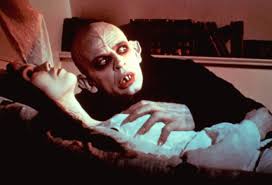
DIRECTED BY LAURA WAY.
STARRING JEMMA CARLTON AND SCOTT REID.
ORIGINAL NETWORK: CHANNEL 5.
CURRENTLY AVAILABLE TO WATCH ON NETFLIX.
REVIEW BY SANDRA HARRIS. ©
I watched this true crime mini-series on Saturday night. Naturally, I found it bleak and disturbing but, contrary to some other reviews it’s received, I also found it very respectful to Holly and Jessica, the two little girls at the centre of one of Britain’s most intensive crime investigations ever, back in the summer of 2002.
The topic of the two girls is touched on with the lightest of hands, ditto the girls’ parents, and even what is revealed about the murders is restrained and not too salacious. The series mostly concentrates on the role of Maxine Carr, Ian Huntley’s girlfriend, in the cover-up of the murders, and on her relationship with Huntley, the killer of the two girls.
We don’t see the murders. They were committed while Ian Huntley’s girlfriend at the time, Maxine Carr, was away in Grimsby, visiting her mum. Ian Huntley remained at home in Soham, Cambridgeshire in East England, in the tied cottage he’d been given when he started work as a senior caretaker at the local Village College. (Maxine had worked as a teaching assistant in St. Andrew’s Primary School in Soham, and had briefly taught Holly and Jessica in 2002.)
Maxine comes back from her visit to her mum when she receives Ian’s phone call about two little girls who’ve gone missing in Soham. Maxine is shocked when she realises that the two girls had been in her class; she’d even been given a handmade greetings card from one of the children.
She’s even more shocked when Ian Huntley starts blabbering on about how he fully expects to be charged for the murders as he’d been the last person to see the children alive, in his garden, while he was supposedly washing his dog. They’d trotted straight off then, apparently, the two girls, ‘happy as Larry,’ off to buy sweets from a local shop, according to Huntley.
Huntley is also worried that his previous brushes with the law involving the sexual abuse of minors might come back to haunt him. Maxine throws herself whole-heartedly into keeping her lover out of jail. She scrubs the entire house from top to bottom, so there’d be nothing to see when the police come calling, which they do.
The real question is this: did Maxine know that Huntley had killed the girls, and so was she covering up for him in full realisation that he was guilty? Or did she really believe his lies that he was innocent, and that the only reason he was worried about the police coming was that he’d been ‘wrongly accused’ of rape in the past and was afraid of being wrongly accused again? Even by the end of the series, we’re still not entirely sure which it is.
Maxine doesn’t appear to have had a happy life. (No excuses, I hear you cry!) Insecurity about her appearance led to her developing anorexia at age sixteen. Brought up by a single mother, she had a string of crappy jobs and crappy boyfriends before finally settling down with Ian Huntley and her temporary job as a teaching assistant, a job she’d apparently wanted for a long time.
She probably thought she’d hit the jackpot with Huntley. Own car, good job that came with a house, and he loved her so much he couldn’t bear for her to be apart from him, texting and phoning her like crazy when she was away at her mum’s, and giving her the odd slap when he thought she’d been flirting with other men. How wonderful to be the love object of such a passionate man! (Object being the key word here.)
We see a bit of the court case, and we also see Maxine withdrawing from Huntley around that time in order not to be tarred with the same brush. We see what their separate sentences are to be, and we get to make up our own minds as to whether or not Maxine Carr got off lightly.
The three episodes, each forty-five minutes long, are unremittingly bleak, but then, there’s nothing to laugh at here. Probably the most concerning point the show brings up is the following: According to Wikipedia, by 2001, Huntley’s proven and alleged criminal activities had been reported to Humberside Police on ten occasions and to the social services on five occasions.
So, what was he doing working in a job in which he had pretty much unlimited access to children and young people? The law regarding this kind of thing was tightened up after the murders. I would imagine that someone like Huntley would find it harder nowadays, if not impossible, to get a job working with children or young people. At least one good thing came out of that dreadful summer.
